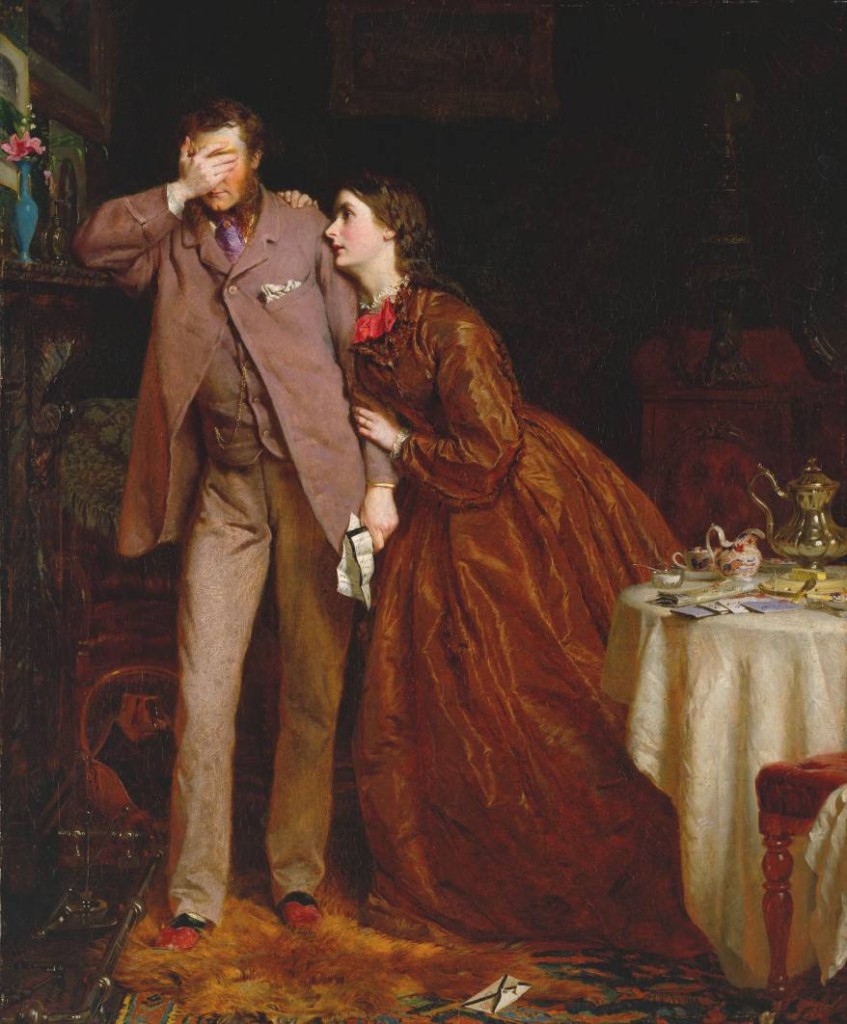I have written recently of my growing fondness of Anthony Trollope’s novels, but there is one aspect of them that is hard to stomach: their unquestioning acceptance of female subservience. As I was reading Prime Minister (1876), one of the Palliser novels, I found myself deeply grateful for 1970s feminism and for modern divorce laws. Patriarchal marriage as portrayed by Trollope is suffocating.
The topic is somewhat relevant today as various fundamentalisms seek to roll back the social gains that women have made. When men and sometimes women find their traditional identities questioned, they may long for old style marriages with the hope that they can regain their self-esteem. Of course, men relying on submission in women and women relying on mastery in men just make each even more vulnerable.
I remember how my fundamentalist brother-in-law shortly after my wedding instructed me to exert more authority in my marriage. (Julia and I had not included “to honor and obey” in our wedding vows.) But I was drawn to Julia’s strength and independence and know now, after 42 years, that I was right in being so attracted.
In Trollope’s defense, he doesn’t so much endorse the power imbalance as paint the world as it is. Because he does so, he reveals the pathologies associated with traditional marriage. In Prime Minister, the women are either resentful and manipulative, like the Duchess of Omnium, or masochististic, like Emily Lopez. Here are some instances of the latter.
Emily discovers early on that her marriage to Ferdinand Lopez is a great blunder. We watch as she tries to reconcile her marriage ideals with a growing awareness of his unworthiness:
She was beginning to learn that the god of her idolatry was but a little human creature, and that she should not have worshipped at so poor a shrine. But nevertheless the love should be continued, and, if possible, the worship, though the idol had been already found to have feet of clay. He was her husband, and she would be true to him. As morning after morning he left her, still with that harsh, unmanly frown upon his face, she would look up at him with entreating eyes, and when he returned would receive him with her fondest smile.
Emily continues to be faithful even when Lopez tries to use her as a pawn, threatening her father to take her to Guatemala unless he is given her eventual inheritance. Yet when her father urges her to separate from him, she invokes the marriage ideal, effectively silencing the old man:
I am bound to do as he tells me. I know what I have done. When some poor wretch has got himself into perpetual prison by his misdeeds, no advice can serve him then. So it is with me.”
“You can at any rate escape from your prison.”
“No;—no. I have a feeling of pride which tells me that as I chose to become the wife of my husband,—as I insisted on it in opposition to all my friends,—as I would judge for myself,—I am bound to put up with my choice. If this had come upon me through the authority of others, if I had been constrained to marry him, I think I could have reconciled myself to deserting him. But I did it myself, and I will abide by it. When he bids me go, I shall go.”
She also resists the entreaties of her old lover to resist going to Guatemala:
“I cannot stay,” she said. “He has told me that I am to go, and I am in his hands. When you have a wife, Arthur, you will wish her to do your bidding. I hope she will do it for your sake, without the pain I have in doing his.”
One gets, from reading Tollope, that women in traditional marriages are not without resources. They can resort to passive resistance or strategic temper tantrums to get their way, even as they appear to honor the marriage ideal. But it’s not a healthy way to live, and Emily so internalizes a sense of unworthiness that she is incapable of accepting her old lover’s renewed proposals after her husband commits suicide.
Much better to have marriage be a continuous negotiation between two acknowledged equals. Of course, at first this may appear more difficult than simply conforming to predefined roles. I can testify that it pays off in the long run, however.


